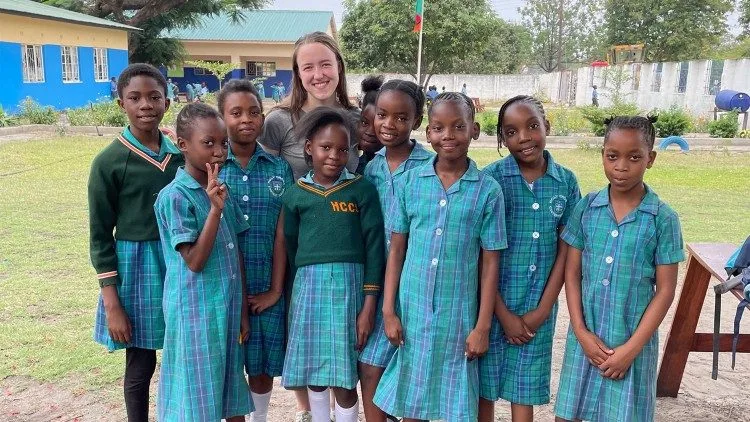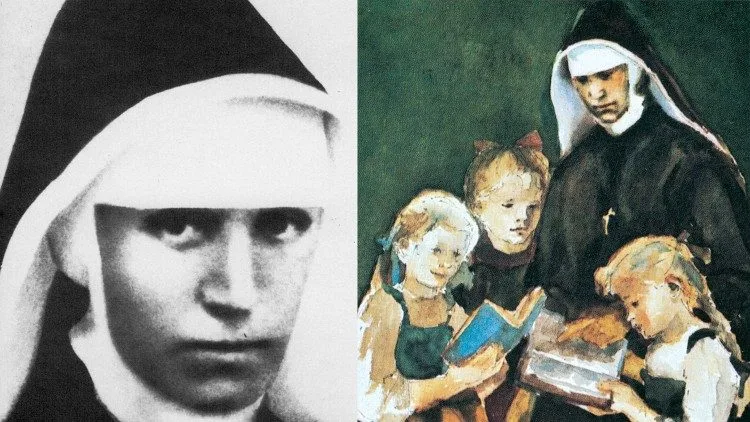Two hundred years ago, a girl was born in the Swiss canton of Aargau whose life continues to inspire the development of the role of women through education.
DIARY OF HUILA, REFLECTIONS
She brought men a lot of hope, Sister Bernarda Heimgartner: on November 26, 2022 we commemorate the 200th anniversary of the birth of the founder of the Sisters (Masters) of the Holy Cross of Menzingen. She was born in 1822 in the canton of Aargau, in German Switzerland. Together with two companions, she founded in 1844 a congregation of teaching sisters at the initiative of the Capuchin friar Teodosio Florentini, responsible for the education of young women, who contributed in an essential way to the development of the role of women.
Anna Maria Heimgartner—who would take the name of Sister Bernarda as a nun—was fortunate enough to learn to read and write as a child at the local school in her hometown of Fislisbach, in the canton of Aargau. Maria is highly intelligent and happily aware of this privilege. When, in the 1830s, the Capuchin Father Theodosius Florentinus had the idea of founding a community of nuns for the education of young girls, Ana María immediately accepted. In 1839, together with two of her companions, Florentini sent her to the “Maria Krönung” convent in Baden. Meanwhile, the political situation became increasingly unstable and anticlerical, and the convent of “Maria Krönung” was closed, like other convents: teacher training was temporarily suspended.
Meanwhile, Theodosius continues to encourage the young women to study: in Freiburg im Breisgau they continue their training with the Ursuline nuns and complete their novitiate in Ribeauvillé, Alsace. The three young sisters also want to bring to Switzerland the type of religious life that is lived in Ribeauvillé, going in small groups to smaller towns to teach. Your project is bound to succeed.
In small groups through the villages
The parish priest of Menzingen, in the canton of Zug, already intended to create a school on the model of Ribeauvillé. Meanwhile, Sister Bernarda and her companions cast her vows in October 1844 in Altdorf, in the Capuchin convent of Father Theodosius, and thus can begin their work in Menzingen. Soon the community of sisters grew and so the nuns, in groups of two or three, went to the mountain villages to teach the children in the village schools, surrounded by great poverty. Sister Bernarda, in the role of her director, encourages her sisters—by writing and visiting them—to persevere in her teaching work. There is abundant documentation showing that, during visits by state authorities, the scholastic achievements of the Sisters of Menzingen are always highly appreciated. The nuns are trained in the light of the Catholic Enlightenment: they want girls and women to be able to develop their potential through education and thus embark on the path of emancipation. Indeed, the Catholic Enlightenment sought to create a link between reason and faith, but without neglecting knowledge of the Bible.
Rejected by conservatives and liberals
But with her work, Sister Bernarda doesn’t just make friends. The representatives of the Catholic environment, in which her sisters mainly work, reject the education of young women. According to her mentality, her daughters and wives should only work in the family sphere: have children, raise them, cook, run the house and be responsible for religion within the family. But not only the conservatives reject Sister Bernarda: the liberals, on the other hand, suspect that she limits herself to teaching devotional exercises to children. At the same time, more and more young women are joining the congregation of teachers: in Menzingen, where the foundation is based, a school has been set up where young women study to become teachers.

Empower people inside
Since 1883, the Sisters began their mission in Africa, and at the beginning of the 20th century also in India and Latin America, and later in Sri Lanka. In Europe, the Sisters (Masters) of the Holy Cross of Menzingen arrived in Italy and later in Germany and England. Today, faith formation is one of their main commitments and this is carried out through pastoral work, religious teaching, faith formation from an early age, offering spiritual events, especially for young people, such as spiritual exercises.
Today, many sisters in Europe are old and need care; however, still in their nursing homes, they are aware of their mission and often manage to give the nursing staff a firm foothold in life and faith.
The sisters encourage the young women to work with their sisters in Africa for a while, and thus the young women can deepen their own faith, at the base of which is always Sister Bernarda’s goal: to enhance each person’s own potential.
Recognized the heroic virtues of the founder
Sister Bernarda Heingartner was a great woman whose work had an extraordinary effect on society and on the Church. In 1994 her heroic virtues were recognized. Although a miracle has not yet been officially recognized for her canonization, many people trust her as an intermediary with God. She gives us the Sisters of the Holy Cross the incentive to continue highlighting the gifts of each person.
